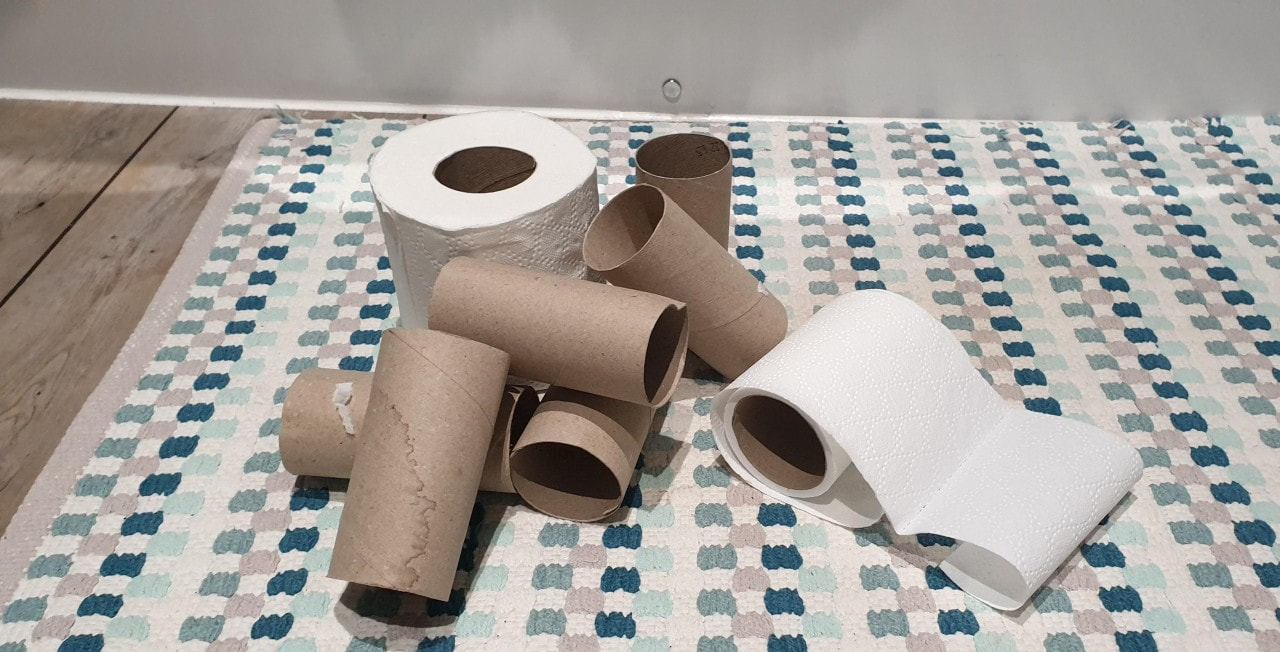|
I have noticed over the past couple of days, an increasing number of posts from distraught or angry people who are unable to buy the goods they need in the shops. The exhausted hospital worker and the angry carer of an elderly or disabled person write posts that can move us quickly to blame and condemnation. I am not underestimating the impact of this experience, indeed what I am noticing is how this impact builds.
It may be that there are a group of people who have food stocks in their garages and sheds, spare rooms bursting with toilet paper and hand gel and boxes of paracetamol and medicines under the bed. However, I think this group is probably small. Moreover, I think this group may be especially anxious and fearful and that this will be a huge burden to live with over the next few months that no amount of extra toilet roll will assuage. A much bigger group is the rest of us. From what I can understand about supermarket logistics, it seems that the supply system is very intelligent and usually delivers what we need, just in time, so minimising costs of storage and waste and maximising profit. It seems it does not take much to upset this balance. It may be very logical to plan in case we are ill. Not a selfish act but a generous one. Sensible measures so we don’t put pressure on other family members or a community who would need to shop for us if are incapacitated. A packet of pasta, tin of beans and a pack of toilet rolls would hardly be considered “panic buying” by most people and yet, if it is not what we would usually buy, when you add it all up, it will impact on the supply chain. Add to this the idea that our purchasing behaviour is not rational. If it was just a logical decision based on need, the marketing and advertising industry would simply not exist. So just telling us not to “panic buy” is unlikely to have much impact. Most of us would not identify buying a little extra as panic buying. Previous studies, such as that presented in Butterfly Economics, demonstrated how the interaction of many factors can cause behaviour to suddenly switch and that our behaviour is far from predictable. If we view changes in purchasing patterns through this lens then what we have termed “panic buying” is not irrational either, it is informed by a range of information and experiences. It is true that some supermarket shelves are empty, that toilet rolls are often not readily available, and this is an experience shared by our family and community and will naturally impact on our thinking, emotions and behaviour. The issue seems to be that we are thinking about this as a simple problem with a linear cause and effect. People are buying too much which means others are being left without. We then overlay this with a moral judgement. With no real understanding of what we mean, we label the people who are “panic buying” as selfish and bad. The result of this thinking plays into the complexity of the situation that we are failing to identify. My sister worries that if she does the shopping for my elderly mother and her elderly neighbour too, that the people at the supermarket will condemn her as a selfish panic buyer. Meanwhile we issue advice that elderly people should not leave their homes and that we all should limit the number of visits to the shops, perhaps going less often and buying more than we would usually to last over a longer period. We create even more anxiety, fear of being judged by others, fear of disobeying the rules of going to the shop too often and buying too much, and fear or being without the goods we need. We cannot meet all these contradictory demands and we get even more stressed and anxious. By failing to identify the complexity of the issue and work with it in this way, we are unable to address it. Indeed, by adding a moral judgement into the mix we are likely to create more problems. It is not Coronavirus that is creating this issue but a virus of fear and uncertainty. By failing to recognise the complexity and applying simple moral judgements, we are building on the problem, feeding the fear and creating new problems. If we can see this, then we can choose to stop. First published linked in March 2020 |
AuthorJane Pightling has experience across the public, private and charitable sector. Through her work in the NHS Leadership Academy and her consultancy Evolutionary Connections she developed complex systems leadership capacity, providing training, coaching programmes and establishing networks and communities of practice to sustain learning. She maintains her social work registration and her commitment to person centred and community focused approaches. Jane has a deep interest in the potential offered by new ways of working, designing and building organisations and communities that can best deliver this kind of service. She works with organisations and leaders to develop approaches that design in autonomy, wholeness and purpose. Archives
October 2021
Categories
All
|



 RSS Feed
RSS Feed